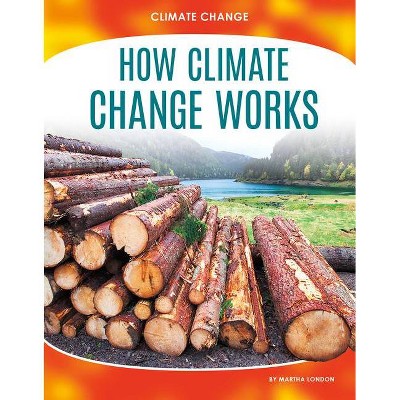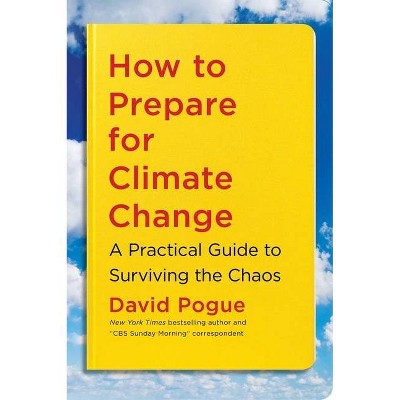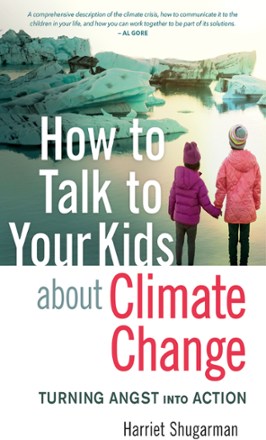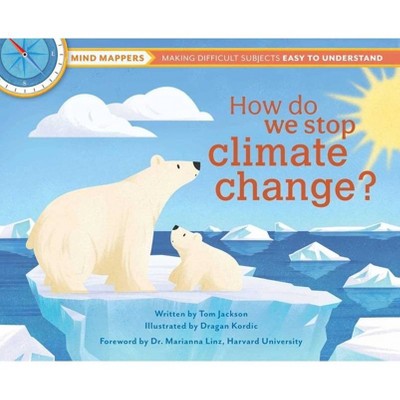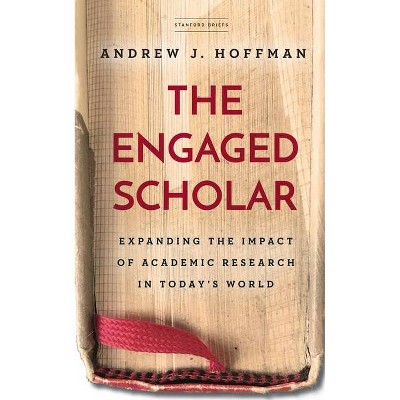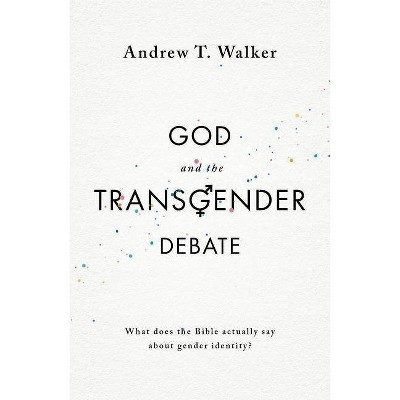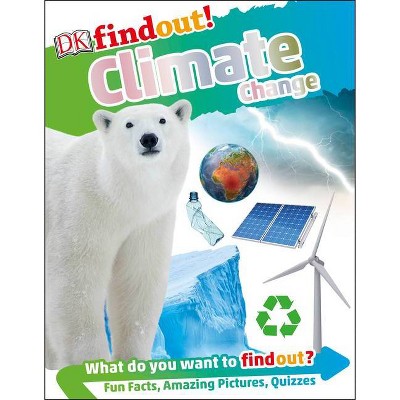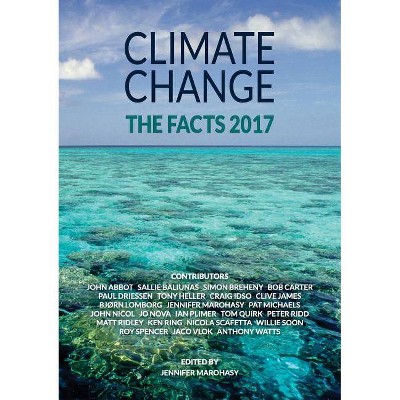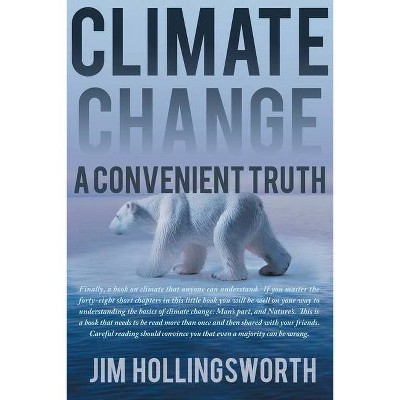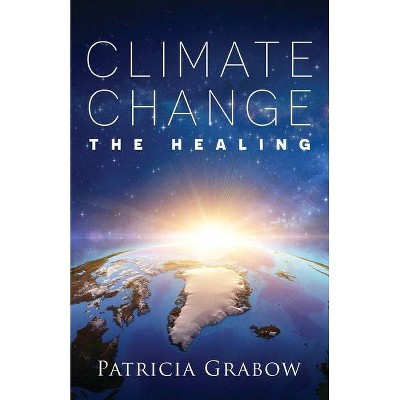How Culture Shapes the Climate Change Debate - by Andrew J Hoffman (Paperback)
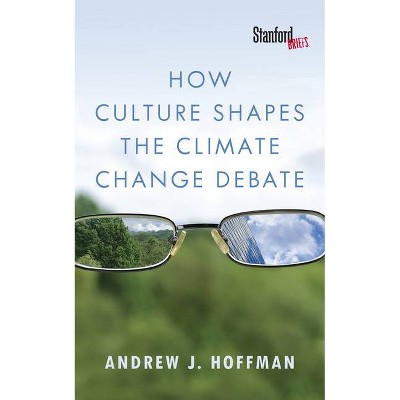
Similar Products
Products of same category from the store
AllProduct info
<p/><br></br><p><b> About the Book </b></p></br></br>Rather thanpointers to improve the dialogue about this pressing issue in hopes of finding common ground. attributing fault lines in the climate debate to rival scientific theories, this brief argues that the public is split by opposing cultural views through which science is interpreted. After considering how the media, social norms, and psychological factors cause us to accept or reject climate change, Andrew J. Hoffman provides<p/><br></br><p><b> Book Synopsis </b></p></br></br>Rather thanpointers to improve the dialogue about this pressing issue in hopes of finding common ground. attributing fault lines in the climate debate to rival scientific theories, this brief argues that the public is split by opposing cultural views through which science is interpreted. After considering how the media, social norms, and psychological factors cause us to accept or reject climate change, Andrew J. Hoffman provides<p/><br></br><p><b> Review Quotes </b></p></br></br><br>Andrew is so right: 'It's about values, not science.' We learn values and their application from people we trust. So, in order to build trust, we must go to them with credible messengers and affirm their truth. This book offers a clear explanation of why this is so, and what do about it.-- "U.S. Rep. Bob Inglis (R-SC4) (1993-1999; 2005-2011)"<br><br>Andrew Hoffman's central message is that more scientific information, while necessary, is insufficient to persuade those who dismiss the reality or seriousness of global warming. Summarizing multiple lines of research, he helps the reader understand the diversity of public responses to climate change and suggests promising ways forward. A very readable and helpful book!--Anthony Leiserowitz, Director "Yale Project on Climate Change Communication"<br><br>Climate change has become a culture war issue and Andrew Hoffman has pointed the way towards a ceasefire. In this compelling discussion, Hoffman offers intriguing, commonsense guidance on how people of all political stripes can move from mudslinging to real, constructive solutions.--Eli Lehrer, President "The R Street Institute"<br><br>Hoffman aggregates and analyzes social scientific data regarding reasons for disagreement, among the US public, about the veracity of the science of climate change. He asserts that public perception of the climate change debate is rooted in avoidance . . . An accessible, intelligent, comprehensive discussion of the impact of cultural values and political economies on the use and acceptance of scientific data and theories . . . Highly recommended.--H. Doss "<i>CHOICE</i>"<br><br>Hoffman, [...], first lays out the psychological and social biases people bring to the climate discussion and then suggest techniques for making that conversation more productive . . . This slender, practical volume will aid anyone hoping to sway climate deniers - whether on Facebook, from a podium, or over a beer.--Jake Abrahamson "<i>Sierra Magazine</i>"<br><br>Hoffman's book is a much-needed analysis of how humans process information--and how that messy mix of reason, emotion, and cultural influence shapes and reinforces our views on global climate change. Important reading for anyone who wants to influence public opinion and public policy on this crucial issue.--Fred Krupp, President "Environmental Defense Fund"<br><br>I can certainly see [this book] being used by high school science teachers and teacher educators in science teacher preparation courses to help students understand the psychological and cultural aspects of the ongoing differences in people's views on climate change, and many other socially contentious issues. Concerned citizens and activists should also be able to mine many interesting and useful nuggets of information and advice from the book that can help them reach across the divide and build crosscutting alliances that are so critical for any meaningful progress to occur on climate change.--Ajay Sharma "<i>Science & Education</i>"<br><br>One of the tallest orders of our day is to communicate effectively about global warming. Hoffman shows us how to talk about climate science and policy in ways that depolarize the debate and empower people to form their own opinions based on the scientific risks. This book is a valuable resource, and it comes at the right time.--Ken Kimmell "President of the Union of Concerned Scientists and former Commissioner of the Massachusetts Department of Environmental Protection"<br><br>This is a well-researched treatment of cultural dimensions of climate science and policy. Hoffman's ability to organize overlapping literatures into a cogent assessment of the current conditions makes for a wonderful book.--Max Boykoff, Cooperative Institute for Research in Environmental Sciences (CIRES) "University of Colorado-Boulder"<br><br>Throughout the book, the author does an exceptional job of clearly summarizing what is a wealth of information, and presents it in a way that the reader can digest with ease by reading this book, the reader will become more aware of the social issues of accepting/rejecting climate change science and be better equipped when entering into dialogue with climate change deniers.--Rebecca Rhead "<i>Environmental Values</i>"<br><p/><br></br><p><b> About the Author </b></p></br></br>Andrew J. Hoffman is Professor of Sustainable Enterprise and Director of the Frederick A. and Barbara M. Erb Institute for Global Sustainable Enterprise at the University of Michigan.
Price History
Cheapest price in the interval: 13.99 on October 22, 2021
Most expensive price in the interval: 13.99 on December 20, 2021
Price Archive shows prices from various stores, lets you see history and find the cheapest. There is no actual sale on the website. For all support, inquiry and suggestion messages communication@pricearchive.us
